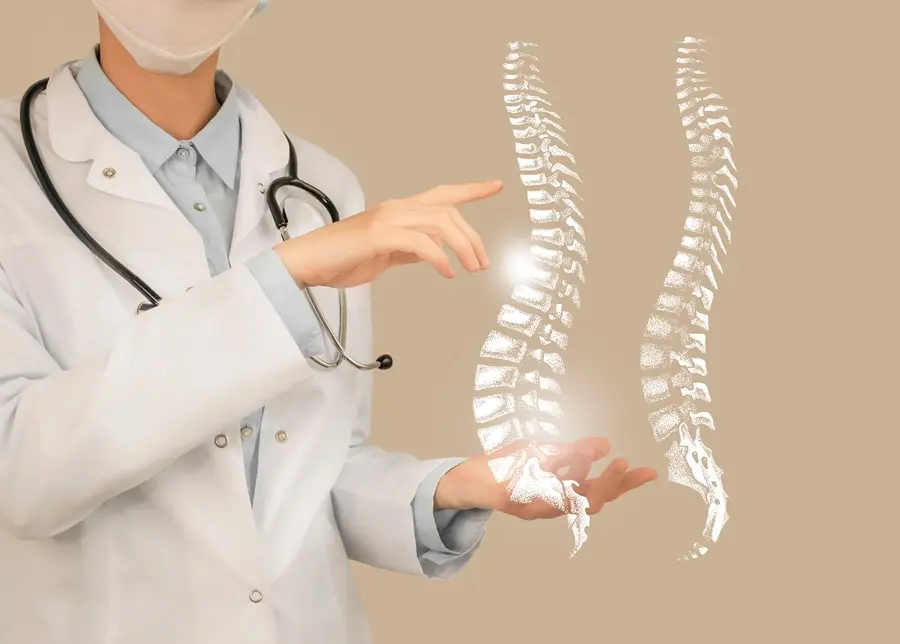Signs and Symptoms of Spinal Injury
Spinal injuries are an alarmingly common outcome of both minor and major accidents.
Here are some signs and symptoms to be aware of:
- Acute back pain or pressure: A sharp pain or pressure in the neck, head, or back can indicate a spinal injury;
- Weakness, incoordination, or paralysis: Any degree of paralysis or weakness in any part of the body, or a loss of control over any part of the body, can be a symptom of spinal cord damage;
- Loss of bladder or bowel control: This includes an inability to control urination or bowel movements or a change in the regularity of these functions;
- Loss of sensation or altered sensation: An inability to feel heat, cold, or touch, or an altered sensation that feels like a band is tightly wrapped around the torso or limbs;
- Difficulty with balance or walking: Trouble maintaining balance or walking properly can be a sign of a spinal cord injury;
- Shock-related symptoms: Pale or clammy skin, blue lips or fingernails, and a decrease in alertness can indicate shock, a common response to significant injuries, including those to the spine.
If you notice any of these symptoms in yourself or a loved one, it’s crucial to seek immediate medical attention to determine the underlying cause.
What Are the Most Common Causes of Spinal Cord Injuries?

Spinal cord injuries can have many potential causes, from accidental slips to catastrophic vehicular accidents.
The following are some notable factors that contribute to spinal injuries:
- Motor vehicle accidents: Car, truck, motorcycle, and other vehicle accidents are the leading cause of spinal cord injuries in the U.S. — the impact and force in these accidents can cause severe damage to the spine;
- Falls: Falls are another significant cause of spinal cord injuries, especially in older adults; falls from height can also result in spinal injuries in younger individuals;
- Violence: Incidents involving violence, such as gunshot or knife wounds, can cause spinal cord injuries, which are particularly severe in the case of direct trauma to the spinal cord;
- Sports injuries: Athletic activities, such as high-impact sports like football, gymnastics, and diving, can lead to spinal injuries due to accidents or collisions;
- Diseases: Certain diseases can also lead to spinal cord damage; for instance, cancer, arthritis, inflammation, and infections can all affect the spine’s health and integrity;
- Work-related accidents: Occupational hazards, particularly in construction or industrial settings, can result in spinal cord injuries due to falls, impacts, or accidents involving machinery.
If you’ve been injured under any of these circumstances, you may be eligible to seek financial support in the form of compensation.

Consult a Jackson Paralysis Attorney for Legal Assistance
At Brown, Bass & Jeter, we understand the devastating effects that a spinal cord injury can have on an individual and their family. You can trust our highly experienced litigators to fight aggressively for justice and fair compensation on your behalf.
Contact us online or at (601) 873-6436 to set up a free consultation.
What Are the Most Common Effects of Spine Injuries?
Spinal cord injuries can have life-altering effects, whether physical, emotional, social or a combination of all three. They frequently result in varying degrees of paralysis, including paraplegia or quadriplegia, conditions that can present a multitude of frustrating side effects.
Any of the following conditions can necessitate extensive medical and rehabilitative care and significantly impact the individual’s quality of life and psychological well-being:
- Partial or complete paralysis
- Loss of sensation
- Impaired bowel and bladder control
- Difficult breathing
- Chronic pain
As you can see, a spinal cord injury can affect more than just your spine — it could potentially upend every aspect of your daily life.
Damages Available to Spinal Cord and Paralysis Injury Victims

When someone suffers a spinal cord injury resulting in paralysis, they may be entitled to various forms of damages if the injury can be attributed to someone else’s negligence or malice.
These financial awards can be used to cover the following costs:
- Medical expenses: Includes all medical treatment related to the injury, such as hospital stays, surgeries, medications, and equipment costs; future medical bills are also considered, as spinal cord injuries often require long-term or lifelong medical care;
- Rehabilitation costs: Expenses for physical therapy, occupational therapy, and other forms of rehabilitation that are crucial for recovery and adapting to new physical limitations;
- Lost wages and earning capacity: Compensation for lost wages includes the income lost due to the injury and potential future earnings if the injury impacts the victim’s ability to work or reduces their earning capacity;
- Pain and suffering: Provides payment for the physical pain and emotional distress caused by the injury in recognition of the non-economic impact of the injury on the victim’s life;
- Loss of enjoyment of life: Spinal cord injuries can severely restrict a person’s ability to engage in activities they once enjoyed — compensation for loss of enjoyment of life acknowledges these lifestyle changes and restrictions;
- Home and vehicle modifications: Remuneration can cover the cost of modifying a home or vehicle to accommodate the victim’s new physical limitations, such as wheelchair ramps or remodeled bathrooms;
- Long-term care costs: If the injury requires long-term care, such as in-home nursing assistance or a specialized facility, these costs can be included in the damages;
- Punitive damages: In cases where the injury resulted from particularly egregious or intentional actions, punitive damages might be awarded as a way to punish the at-fault party and warn against similar behavior in the future.
A qualified personal injury attorney can analyze the particulars of your case and estimate the type and amount of damages you’re eligible to receive.
Jackson’s Statute of Limitations for Spinal Cord Injury Claims

In Jackson, the statute of limitations governing spinal cord injury claims, like most personal injury cases, is generally three years from the date of the injury.
This means that a person who’s suffered a spinal cord injury due to someone else’s negligence or wrongdoing must file a lawsuit within 36 months of the date the injury occurred. If they fail to do so, they risk losing their right to seek compensation for their injuries.
It’s important to note that there can be exceptions and specific circumstances that might alter this timeline. For example, if the injury didn’t manifest immediately, the statute of limitations might be extended to reflect the date of discovery. Additionally, claims against government entities might have different deadlines.












